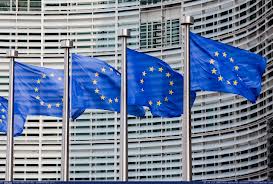 Brussels 11 January 2019 – Adoption of the Clune Report on European Maritime Single Window Environment:
Brussels 11 January 2019 – Adoption of the Clune Report on European Maritime Single Window Environment:
CLECAT, ECSABA, ESC, EMPA, ESPO, FEPORT & IPCSA welcome focus on data harmonisation and existing reporting channels. However, we caution against the creation of an EU Level Access Point Interface.
The above mentioned organisations welcome the adoption by the European Transport and Tourism Committee of the Clune Report on the draft Regulation for a European Maritime Single Window Environment.
We believe that the focus of the report on data harmonization is the right approach and will lead to simplified reporting formalities for ships. However, it is important to ensure that the harmonised interfaces remain technologically neutral. This will ensure that potential new systems are not rapidly outdated by new developments, while at the same time ensuring industry does not need to needlessly re-invest in regulatory compliance and can instead focus on innovation and improved services.
Clarification on the connection between Maritime Single Windows and Custom Single Windows is very much appreciated. Both ship reporting and customs reporting will be undergoing significant changes over the coming years, especially in light of the Union Customs Code work programme, and it is therefore crucial that work on both reporting environments is aligned. This will ensure operators and service providers can plan their investments accordingly.
We also welcome that existing reporting channels, such as Port Community Systems, should be maintained as reporting channels. These channels, generally created collaboratively by the private sector, ensure that reporting formalities can be done in the most efficient manner and enable exchange of relevant information within the private sector. It is therefore important that these channels can be maintained and are not needlessly replaced by other interfaces that would limit innovation and cooperation for the private sector. We therefore also oppose the creation of an EU Common Access Point Interface. The above mentioned organisations believe that such a system would be against the Commission approach of creating an interoperable environment or “systems of systems” and would require significant investments from Member States and the private sector with limited, if any, added value for the entire logistics chain.
The priority for trilogue now needs to be on creating a truly interoperable environment for ship reporting which can only be achieved through data harmonisation.





